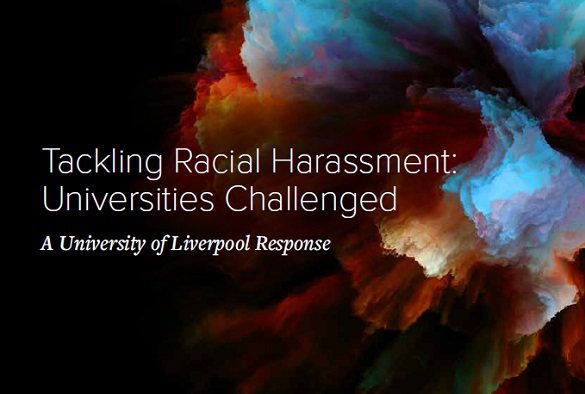
Professor Dame Janet Beer, Vice-Chancellor, University of Liverpool:
Today marks one year since the death of George Floyd. His murder by police officer Derek Chauvin and the subsequent response to the Black Lives Matter protests marked a moment of reckoning with the nature of contemporary racism and racial violence and the reckoning has extended far beyond the US, sparking a global resurgence of anti-racist movements.
Last summer I wrote an open letter to our University community to describe the steps we would be taking to tackle racism and discrimination wherever it may manifest. I am heartened by the work of staff and students throughout the University over this period, while, at the same time, I am acutely aware of how much there is still to do, for instance, to eliminate the awarding gap between white and black students by 24/25 as outlined in our Access and Participation Plan. As in many other institutions, there remains a chronic underrepresentation of Black, Asian and Minority Ethnic staff in senior posts, and we know from conversations with staff and students virtually, in person, and through social media, that there are live issues of inequitable experiences for us to tackle head on.
The work to address these issues continues and the publication of our response to the Equality and Human Rights Commission Inquiry, Tackling racial harassment: universities challenged, signified a renewed commitment to tackling racial harassment on campus. In line with the recommendations of this report we’ve made significant progress in: launching a new tool for students to report racial harassment; establishing a new definition of discrimination in our student code of conduct; establishing a new partnership with the Anthony Walker Foundation and rolling out training with them; piloting the Student Success Innovation Fund to encourage colleagues to trial programmes to close award and experience gaps; strengthening our governance on issues of equality; signing up to the Advance HE charter to further our work in this area; running a welcome week module on anti-racism with 5,000 participants, and supporting colleagues with new data-dashboards on local awarding gaps, amongst other activities.
I’m encouraged by this progress and hopeful that upcoming initiatives aligned to our Student Success Framework will further embed this activity within the University. However, we are not only trying to change our activities but also an approach to education which sees equality of outcomes for staff and students as our absolute priority. On this basis I know the Race Equality Charter team will be delving deeply into our data, in order to analyse the wider experiences of our staff and students. In a recent talk Executive Pro-Vice-Chancellor Fiona Beveridge described our work as a journey on which we are taking the first steps. It is my commitment to all of you that we will not deviate from this path, despite the obstacles we may sometimes face, no matter where we may fall short, and, by recognising our own shortcomings we will continue to work toward an ever more equitable institution. This week and last, we have been hosting interviews for a Race Equality Officer, and a Head of Diversity and Equality and I look forward to working with them in taking this work forward.
Today, I hope you will take the opportunity to read through some of the work produced by our colleagues over the past year. In the context of COVID-19 Dr Leona Vaughn and Dr Angela Obasi produced, Racial Inequalities and COVID-19: Building Back Better for All, for the Heseltine Institute. Elsewhere, this piece on Black Lives Matter, Covid-19 and the long, cruel shadow of medical racism by Dr Stephen Kenny, this Liverpool Responds event on enabling diversity, equality, and inclusion and this series of podcasts prepared by The Academy (episodes 29-33) bring a new context to the importance of anti-racist practice. From a student perspective you might find the work collated by Liverpool Guild of Students for Black History Month of interest. Further afield, the resources by National Museums Liverpool, provide a diverse range which, in their words, puts a spotlight on the importance of racial justice.
Thank you to all the colleagues who continue to contribute to our plans, for all of you who have supported this vital work, and our Black, Asian and Minority Ethnic Staff Network who play a vital and supportive role at this institution. It is my commitment to you that we will not only continue to prioritise our work on race equality but, with additional resource being made available, we will address the shortcomings I have outlined here, communicate how we are addressing them, and work with our partners in, not only bringing change to our campus, but to our city and region too. And finally, if you need support please know that it is available to you. If you are a student you can contact the University’s student advice and welfare team and staff, please access the Employee Assistance Programme.